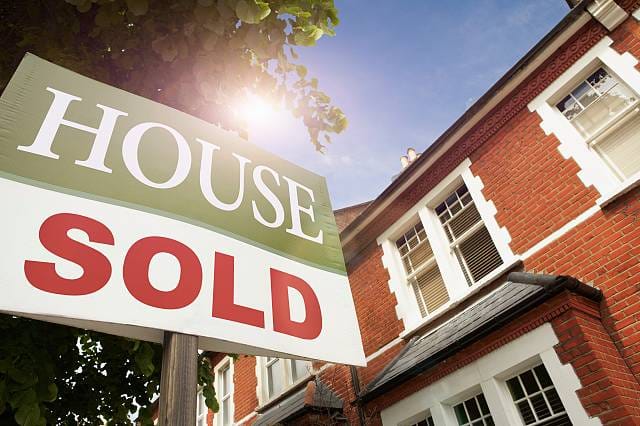One of the most important yet sometimes overlooked aspects of selling your house or flat is the fact that you need to plan a budget for it. There are many hidden costs regardless of which method of selling you use, and these can reduce your total overall profit from selling – sometimes significantly, and even to the point where you might struggle to break even.
That’s where a budget can help. Most homeowners have a specific goal in mind when selling their properties, such as upsizing or downsizing to their next dream home, moving to another country, preventing repossession, selling an unwanted inherited retirement home, and many other situations. The common thread for each of these and other justifications for selling is that it’s vital to have a general sense of the amount of proceeds you could expect from the sale.
This type of advance planning is particularly crucial if you are thinking about using an auctioneer to sell your home, because they will charge you fees, and there are other costs involved with this approach to selling. You’ll need to account for all of them before you can get anything approaching a truly accurate estimate of your total expenses with selling your property.
Auction Link has extensive knowledge of the entire process of trying to auction residential and commercial properties. Below you’ll find some tips on what to expect in terms of the costs that you might have to pay when you try to find a buyer for your home with this method.
The typical three main expenses of selling a property at auction
Demand for selling homes at auctions continues to stay high in the UK, and that’s because owners are enticed by the potential to achieve a acceptable sale price. They’re hoping that several people want to buy their house or flat, and try to outbid each other by offering higher and higher prices for the property.
But even if you manage to sell your home at an auction, you still need to factor in the costs both before and after the sale to get an accurate idea of the final net profit that you can make. There are typically three main expenses that you’ll have to pay when selling this way: a fee to enter your home into an auction, a legal pack, and whatever commission the auctioneer charges.
Auction entry fee
Most, if not all, auction houses will require that a homeowner pays them a fee for entering their property into an upcoming auction. It’ll likely be classified as either an entry fee or a catalogue fee.
Note that although some auctioneers will require that you pay this entry free upfront, other companies might let you delay payment until after your home has sold.
And always ask an auction house before selling whether they charge entry fees, because you’ll find that some companies do not, which helps to save you money. Don’t be afraid of comparing and contrasting fee amounts from several auctioneers before deciding on which one you would prefer to use for selling your home.
Legal pack
An essential part of the process of selling your home at auction is contacting your solicitor so that they can put together a legal pack. This is a collection of some of the most essential information about your house or flat such as the title plan, details on any lease arrangement for the home if one exists, and more.
Auctioneers’ commission
Auctioneers put in a lot of hard work to sell a home, including creating the listing for it and advertising the property to prospective buyers in the weeks before an auction, and also hosting the auction itself. The primary way that they get paid for this work is to charge sellers commission if the auctioneer successfully manages to sell a home.
If your property is particularly valuable, you might want to consider asking the auctioneer whether they would be open to negotiating for a reduced commission. That’s because even if the auction house lowers its rate slightly, it still stands to earn a significant return on the sale because of the property’s high value. Some auctioneers will refuse to negotiate and you shouldn’t be offended by this, it might just be their internal policy. But don’t be afraid to ask around several auction houses to get the lowest fees possible.
And if your property has a very low value, the auctioneer might not use their standard commission rate. That’s because they might not get a great return if they use a typical 2 percent commission for selling a house, flat or other structure worth less than £10,000. In those instances the auctioneer is more likely to charge a flat rate for handling the slate, which usually starts at £1,500 but can be higher with certain companies.
What’s the typical cost for auctioning a single property?
Using the above expenses as a guide, you can expect to pay anywhere from nothing to £500 for an auction entry fee, followed by £350 to £500 to pay your solicitor to complete the legal pack, and finally whatever rate of commission the auction house charges plus VAT.
As such, the price range for selling at auction is up to £1,000 for the entry fee and legal pack costs combined, whereas the amount of commission that you might have to pay if you secure a buyer will be entirely dependent on the final sale price of your property.
And you might also have to pay additional solicitor’s fees beyond the cost of your legal pack if your home does manage to find a buyer during the auction. Your solicitor will work with the buyer’s legal representative to finalise all of the legal paperwork for completing the sale.
Therefore it’s reasonable to assume that the costs of the process of selling your home at an auction are likely to be over £1,000 when factoring in the entry fee, legal pack, and solicitor’s fees for closing the sale, plus whatever commission the auction house will charge you.
How to determine whether an auction is right for your budget
On balance, deciding whether an auction is the right move for selling your flat or house comes back again to budgeting. Use the information above to help plan out a formal budget for selling your home at auction, knowing that many of the figures will be rough estimates rather than specific amounts – for example, you can’t predict at what price your property will sell his way.
And then once you’ve done that work, closely scrutinise the final amount of net profit that you’re projected to make. If it’s enough for you to achieve the next step in your move to a new property, you could consider proceeding with an auction. But if your conclusion is that selling this way means you’ll find it difficult to break even, or even sell at a loss, you may need to consider other methods such as trying an estate agent or contacting a quick property buyer.
Only you can answer that question, and that’s why it’s vital that you be honest with yourself with such planning so that you have a stress-free sale that helps you realise your desired outcome.





Leave a Comment